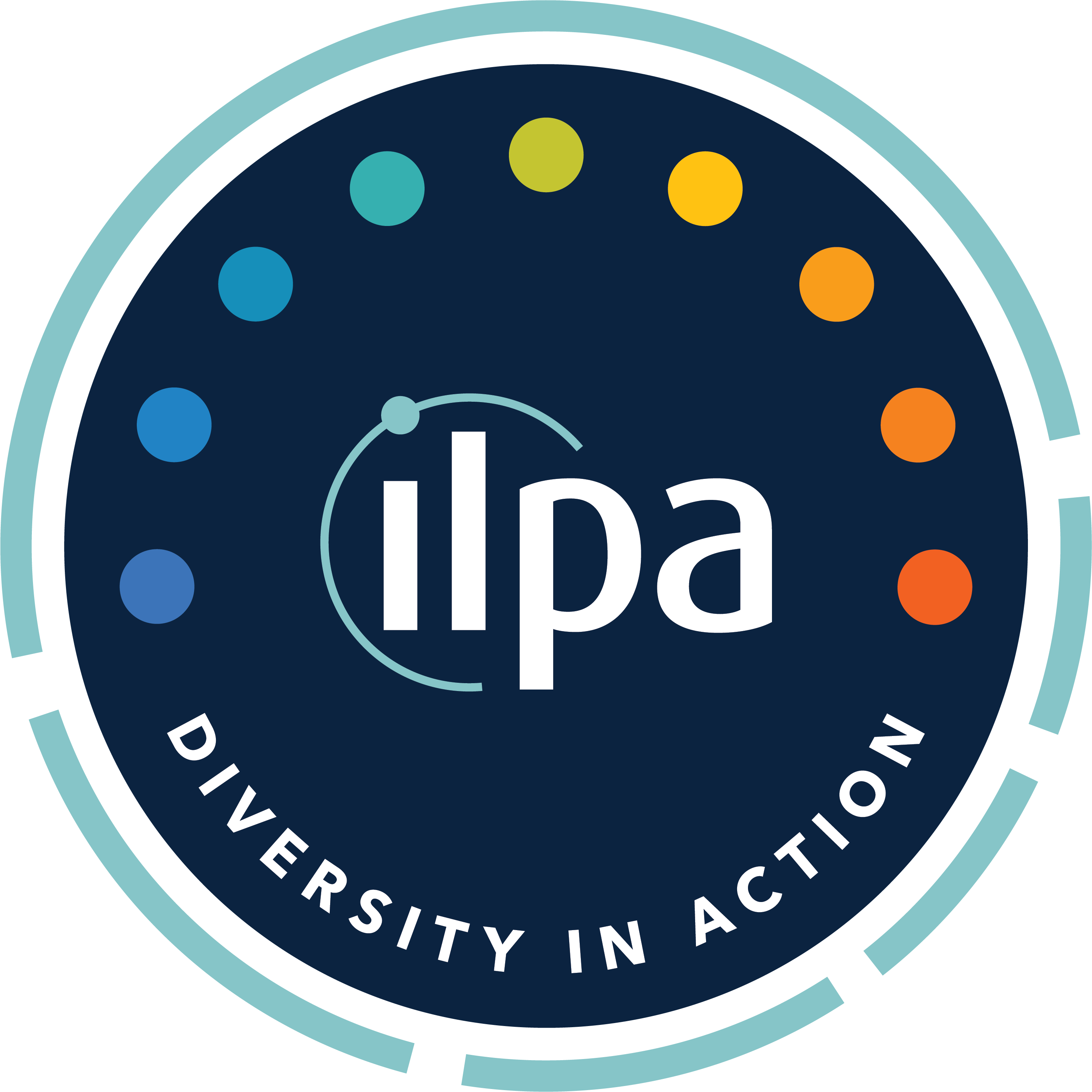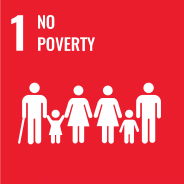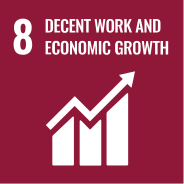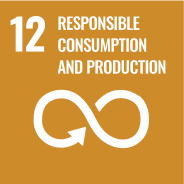Delivering Impact
Throughout DPI’s investment activity, we deliver impact in three different ways.
1Investing in Africa
We serve a developing continent through a strategy specifically designed for Africa.
2Investing in companies
We invest in impactful industries. As of June 2023, we have contributed more than US$540 million in capital towards healthcare and more than US$300 million towards agribusiness, while also providing key financial inclusion and education services through our companies.
3Sustainability Goals
We seek to create impact within our portfolio companies around climate change, gender equality, and job growth and quality; this approach has been formalised in the strategy of our ADP III fund.

Achieving Impact
DPI seeks to achieve its impact goals by
- declaring intentionality
- outlining a plan to contribute towards the UN Sustainable Development Goals
- working with our investments to create impactful practices and products
- measuring and reporting.
To deliver on our Impact and ESG work, DPI has a dedicated in-house Impact, Environmental, Social and Governance (IESG) team. The IESG team engages with portfolio companies to improve sustainability, drive DPI’s impact agenda and ensure ESG standards are met.
Impact Themes
DPI’s approach to delivering impact outcomes through ADP III investment activity:

Gender
DPI believes that gender equality and empowerment of women are central to the effectiveness, relevance and sustainability of a business, as well as to creating social and economic value more broadly.
ADP III is a 2X Challenge Flagship Fund, with a mission to help advance women as entrepreneurs, as business leaders, as employees and as consumers of products and services that enhance economic participation.
We work with our companies to pursue gender smart interventions which increase female representation and empowerment at all levels of the business, and scale operations to improve the reach of services that impact the livelihood of women in the continent.
We are therefore committed to driving gender equality within the Fund’s portfolio companies and in the markets where they operate and contribute towards SDG 5 Gender Equality and SDG 10 Reduced Inequalities.

Job Growth and Job Quality
In developing markets, where we invest, unemployment and disconnectedness from the economy can be key barriers to dignified living. For this reason, DPI recognises job creation as an objective in itself.
We also recognise that improving the quality of work carries benefits for all stakeholders. We achieve this by increasing the productivity and wellbeing of employees, enhancing the attractiveness of the company as an employer of choice, and affording employees access to products and services that would previously not have been available to them.
As such, DPI has developed a unique approach to guide the integration of practices that will guarantee quality of jobs into the way that it assesses, manages, supports and exits its portfolio companies. Our work with portfolio companies contributes towards SDG 1 No Poverty and SDG 8 Decent Work and Economic Growth.

Climate Change
Africa is only responsible for 3% of global CO2 emissions, but the continent loses up to 15% of its GDP per capita annually as a result of climate change impacts.
Climate change is therefore a material risk to the companies in which the ADP III Fund invests.
Although the sectors in which we focus our activity do not tend to be carbon-intensive, we ensure climate change considerations are fully incorporated into the way we manage, support and exit portfolio companies.
Our approach is guided by the recommendations of the Task Force on Climate-related Financial Disclosures (TCFD). We integrate climate change into the governance structure of DPI and our portfolio companies, develop processes to identify and manage climate-related risks of the portfolio throughout the investment process, and report on climate-related indicators during our monitoring period to identify mitigation opportunities.
Our portfolio contribution, in terms of climate change impact, focuses on SDG 7 Affordable and Clean Energy, SDG 12 Responsible Consumption and Production and SDG 13 Climate Action.
Additional company-specific impacts: Financial Inclusion and Healthcare
Beyond our three core investment themes, DPI also seeks to identify additional impact themes specific to each investee company. Additional themes include financial inclusion, integration of SMEs in the supply chain, and greater accessibility to healthcare via pharmaceutical products.
Companies in the ADP III portfolio have the potential to benefit underserved individuals who may lack access to basic goods and services; we help to scale and expand the reach of portfolio companies’ products and activities with the ultimate objective of driving development.
Our investment Process
DPI has developed a rigorous approach to integrate impact and ESG considerations through the investment process, using industry guidance from the Operating Principles for Impact Management, the GIIN and the Impact Frontier.
Pre-Investment
Screening: All investments screened against Exclusion List as per ESG Policy Identification of impact themes, risks and opportunities through Screening Tool
Due diligence: Evaluation of potential impact opportunities and contribution to the UN SDGs Engagement with management teams through interviews and site visits, and collection of baseline data to inform impact scoring tools Impact objectives and targets established for investment.
Investment Committee (IC) preparation: ESG and Impact Action Plan defined and agreed with management team.
Transaction Execution
Investment Committee: Presentation of ESG and impact due diligence assessment presented to investment committee members. Validation of impact objectives, targets and interventions led by DPI.
Transaction execution: Inclusion of Impact and ESG Action Plans and commitments in shareholders agreements.
Post-Investment
Monitoring: Implementation of ESG and Impact strategy through Action Plans Monitoring and reporting of progress against impact targets and ESG initiatives through monthly engagement with investees and regular in-person visits to portfolio company sites.
Reporting: Collection of impact data based on industry frameworks i.e. IRIS+ System and 2X Challenge. Reporting on outcomes data at investee and portfolio levels. Annual reporting on progress against impact targets, objectives and contribution to the SDGs.
Exit: Presentation of impact results and strategy to sustain impact post-exit. Exit questionnaire for potential bidders.

Stewardship
Engagement and stewardship have a crucial role to play in the management of ESG risks as well as value creation for our companies and investors. In line with our partnership approach, stewardship is central to DPI’s strategy to maximise long-term value and achieve sustainable impact.
Direct portfolio company engagement
Corporate engagement is fundamental to DPI’s impact strategy, as we seek to manage negative impact risks and enhance value for our portfolio companies. Direct engagement is carried out with the management teams of our portfolio companies at various stages of the investment process:
- At origination and screening – During our first dialogue with management teams, we seek to understand the company’s potential contribution to our impact themes and define the scope of future engagement.
- During due diligence – We engage in order to negotiate aspects of the deal and define impact objectives and targets for the investment. We set our expectations for management teams, ultimately reinforcing buy-in to our management strategy and action plans.
- Post-investment monitoring – We have one-to-one conversations with management teams to discuss material impact and ESG topics, progress on their action plans, impact data collection and the companies’ impact risk and contribution, on an ongoing basis. The frequency of engagement depends on the level of risk and timelines set for each action item, but for the first year of investment, DPI’s ESG and Impact team engage with management teams on a monthly basis.
- Board oversight – We hold board seats across all of our portfolio companies, enabling us to undertake a deep dive on impact themes at Board level at least once a year with each portfolio company.
Industry partnerships
As signatories to the GIIN and UNPRI, we participate in industry initiatives to engage in sustainability and impact topics alongside other investors. DPI is part of several working groups, where we help to produce guidance for the sustainability industry, provide feedback on emerging research and products, including measurement standardisation and establishing industry benchmarks.
DPI has also have provided consultation on publications alongside the World Economic Forum, including recommendations on topics such as investing with the SDGs, financing in fragile states and guidelines on impact investing for the UNDP.
*Click each logo to find out more about how DPI partners with each organisation

DPI was the first African fund manager to sign the Operating Principles for Impact Management, formalising our ambition to generate commercial returns while driving impact. The principles provide a reference point against which the impact management systems of funds and institutions may be assessed. In 2020, DPI published its Disclosure Statement as required by the Operating Principle for Impact Management and will have its first third-party verification in 2021.
Find out more

In 2020, the G7 Development Finance Institutions selected DPI’s African Development Partners III fund (ADP III) as the first 2X Challenge Flagship fund, committed to investing with a gender lens. DPI has a long-standing commitment to gender equity and works alongside proactive fund managers to effect real impact while generating commercial returns. DPI is intentionally supporting SDGs 5 (gender equality) and 10 (reduced inequalities) through its portfolio in Africa.
Find out more

DPI is an active member of the world’s largest ESG and impact organisation, the UN’s Principles of Responsible Investing (“PRI”) and follows the process of reporting information and then receiving a grade based on PRI’s opinion of DPI’s ESG work. The current grade is an “A”. We engage regularly with the secretariat of the PRI and participate in the different conferences and events held during the year. In 2021, DPI submitted its second PRI Report.
Find out more

In 2020, DPI clearly defined its intentionality for its Impact objectives using the framework of the United Nation Sustainable Development Goals which support the 2030 Agenda for Sustainable Development adopted by all United Nations Member States in 2015. Today DPI is contributing to nine of the seventeen SDGs with a target to include two more by the end of the 2023 through recent investments. DPI uses the UN SDGs framework to report its contribution and showcase how private equity can contribute to the achievement of the goals.
Find out more
The Global Impact Investing Network is an industry initiative convening impact investors to facilitate knowledge exchange, highlighting innovative investment approaches, building the evidence base for the industry, and producing valuable tools and resources. DPI is a member since 2020 and has been participating in the benchmarking exercises conducted by the GIIN, in addition to using their Key Performance Indicators proposed identified in the Iris+ tool. DPI participate in the GIIN conferences and network initiatives, sharing its experience and feedback on implementation of the GIIN tools.
Find out more

Institutional Limited Partners Association (ILPA) is a trade association dedicated to engaging, empowering and connecting limited partners to maximize their performance on an individual, institutional and collective basis. The Diversity in Action Initiative unites both limited partners and general partners with the goal of encouraging market participants to actively advance Diversity, Equity and Inclusion. The initiative provides a platform for DPI to collaborate with a community of practitioners dedicated to DEI, driving to continuously evolve and refine best practice over time.





